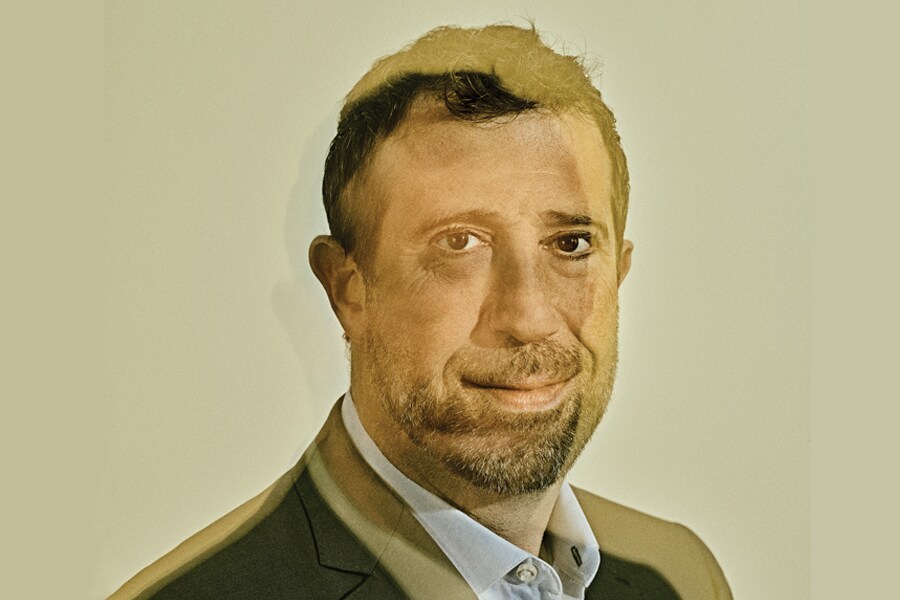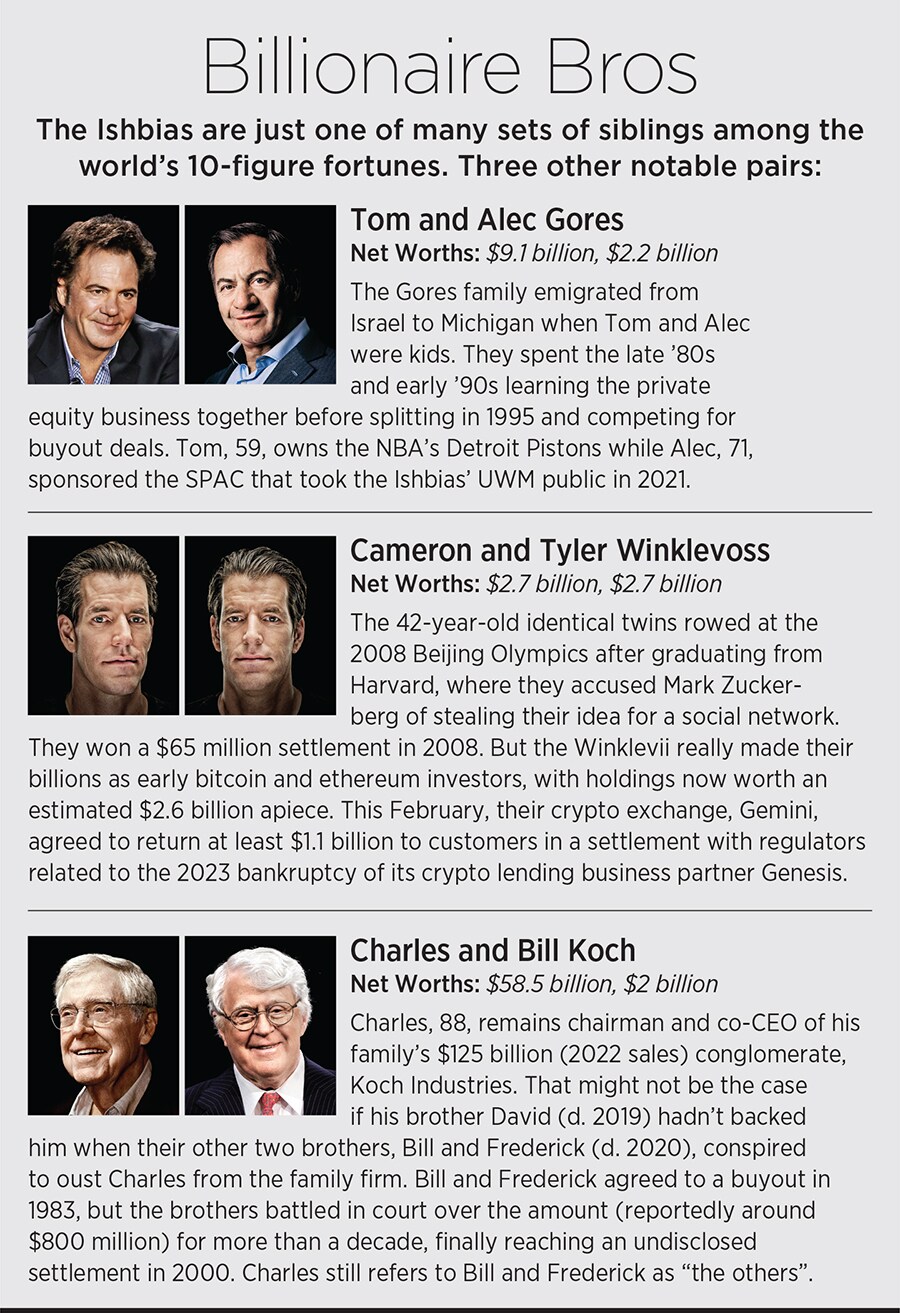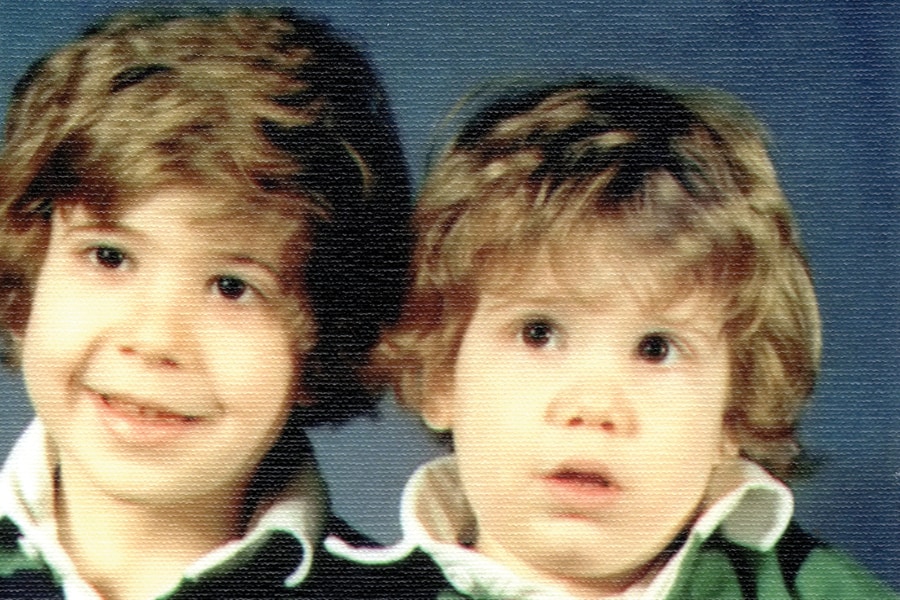
Justin Ishbia: The mom and pop mogul
Billionaire Justin Ishbia has built one of America's most successful private equity firms by focusing on small businesses across the country. He has bought more than 1,000 main street shops, enriched his investors and never lost a dime—but his younger brother, Mat, is still nearly twice as rich

“I talk fast,” says Justin Ishbia with a smile during a recent tour of Shore Capital Partners, his Chicago-based private equity firm. Wearing Nikes with a blazer and jeans, the 46-year-old billionaire moves fast, too, racing through a jam-packed schedule—courtside seats at the Bulls game the night before with his younger brother, Mat, the Phoenix Suns’ controlling owner and also a billionaire; a quick catered lunch with Forbes and four of his top lieutenants followed by a portfolio company board meeting; then a private flight to Oregon to watch U of O’s football team play USC with his law school buddies. He answers texts and emails within minutes, regardless of the hour. “I don’t sleep very much,” he says.
Shore Capital moves just as quickly as its founder. The health care–focussed microcap investment firm sealed 801 deals from 2020 to 2023, making it one of the world’s busiest buyout shops. Its assets under management soared sevenfold to $7 billion during that period, as stellar returns convinced early investors like the University of Notre Dame and Sequoia Capital’s wealth management arm to steadily boost their commitments. But with its 15th anniversary this year, Shore remains a minnow in the ocean of private equity—where the largest fish, such as Apollo, Blackstone and KKR, oversee more than $500 billion apiece. That’s by design. “We’ve turned away billions of dollars,” Ishbia says. “In private equity, when you’re good at your job, you raise a bigger fund. My thesis was, ‘Who stays in microcap?’ The answer is basically nobody.”
Staying small is working out big time: Shore’s average internal rate of return on its 14 exits, all in health care, is 53 percent, net of fees. That’s nearly triple the average net IRR of US buyout funds raised since 2009, according to data from Cambridge Associates. After Shore took its 20 percent to 30 percent cut of profits, its exits multiplied investors’ money by 5.5 times on average, also nearly triple the average total value to paid-in capital multiple of US buyout funds raised during that period. Shore has never unloaded a company for less than three times cost before fees, nor, it says, has it ever suffered a loss. “Those are top 1 percent returns in private equity,” marvels one investor who asked not to be identified, citing his organisation’s press policy. “That’s rarefied air, right? That’s more like venture capital than a traditional buyout firm.”
Ishbia and his team have acquired more than 1,000 mom-and-pop shops across the country (average cost: $15 million) since Shore’s 2009 founding and rolled them up into 61 larger chains of things including autism treatment clinics, bakeries and exterminators. “We’re buying businesses in Akron, Ohio, and Pittsburgh, and Birmingham, Alabama,” Ishbia says. “There’s more low-hanging fruit for me. It’s Joe Schmo on Main Street.”
Shore then invests in computer systems and equipment, stacks the businesses’ boards with industry veterans and hunts for complementary companies in adjacent markets. “We’re just buying and buying and buying,” says Ish- bia, who insists Shore doesn’t take on as much debt as other private eq- uity firms and doesn’t cut services or head count. “The private equity world gets a bad rap for ‘buy this, slash that.’ We are growth—we have almost 35,000 employees and hire thousands per year.”









